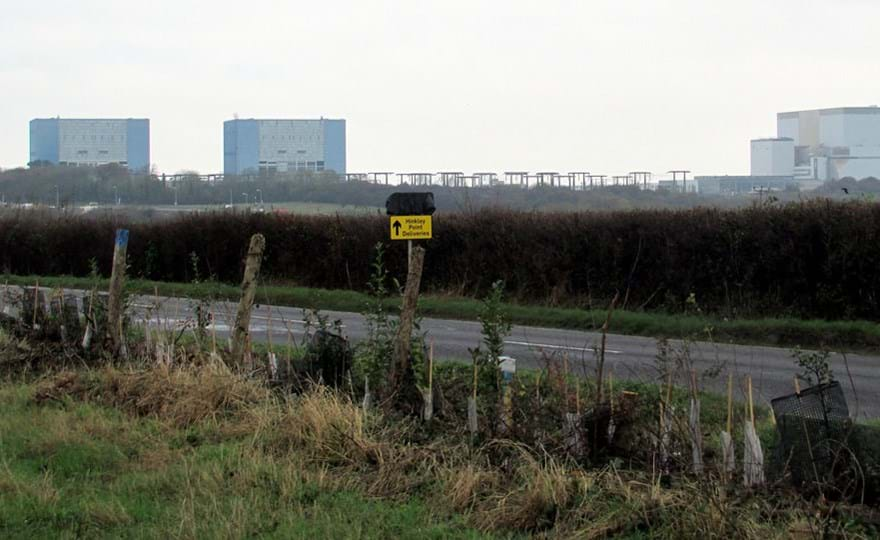ClientEarth Communications
5th December 2017


The European Court of Justice has confirmed the inadmissibility of Greenpeace Energy’s application for annulment of the Commission’s decision approving State aid for the nuclear power plant, Hinkley Point C. It is clear that the nuclear power station will have a significant impact on the environment. Yet, despite the Aarhus Convention clearly requiring State Parties to allow NGOs to have access to justice, environmental NGOs do not have access to the EU courts to challenge EU decisions that allegedly breach environmental laws. In the present case, Greenpeace Energy sought to challenge the State aid under Article 263(4) TFEU as a potential competitor on the energy market. However, the Court of Justice found that Greenpeace Energy had failed to show that its competitive position would be substantially affected by the State aid and, as a result, found the application inadmissible. Regrettably, besides stating that this criterion had not been met, the Court failed to give guidance on its application in practice. The case highlights the challenges relating to access to justice in environmental matters, and specifically State aid cases, notably in view of the Court’s interpretation of the “individual concern” criterion provided in Article 263(4) TFEU.
The appeal sought to set aside the judgment of the General Court of the European Union of 26 September 2016 in case T-382/15, which dismissed Greenpeace Energy’s case seeking the annulment of the Commission’s decision declaring State aid in favour of the nuclear power plant Hinkley to be compatible with EU law.
The Court confirmed its jurisprudence on the notion of regulatory act, recalling that the contested decision did not fall within the meaning of an act of general application, and thus of a regulatory act, since it was addressed to one Member State.
The applicant could still invoke the second indent of Article 263(4) TFEU provided that direct and individual concern was demonstrated. With regard to individual concern, the Court relied on its famous Plaumann doctrine, according to which the decision must affect the applicant by reason of peculiar attributes or circumstances which differentiate it from all other persons. In particular, in the context of State aid, the applicant must show that the measure “substantially” affects its competitive position on the market. In this respect, the mere fact that the undertaking concerned was in a competitive relationship with the addressee of that measure and that the measure may impact the relationships on the relevant market does not suffice for that undertaking to be regarded as being individually concerned. The ECJ concluded that the General Court did not err in law in interpreting the condition in accordance with the established jurisprudence.
With regard to the claim that the General Court had not sufficiently taken into account evidence brought by the applicant to show the substantial effect of the State aid measure on its competitive position, the ECJ found that it had no jurisdiction to assess the facts and evidence submitted to the General Court. While it is undisputable that an appeal is limited to points of law, the ECJ did not address the crucial issue of how to interpret the requirement that the aid has a “substantial effect” on the competitive position of the applicant. In this respect, the applicant had argued that it should not be required to prove that its market position was actually affected or to establish the concrete level of the effect. Instead, evidence showing that such a substantial effect is possible should suffice to have legal standing.
It is regrettable that the ECJ did not take the opportunity to clarify how this criterion should be applied in practice. Indeed, it seems extremely difficult for an economic operator to demonstrate successfully that it is substantially affected by a State aid measure, in accordance with the Court’s current interpretation. The lack of objective criteria poses a problem in view of access to justice, given the fact that the arbitrary requirement of a substantial effect leads to a wide discretion in determining whether the applicant is affected in a way that individually distinguishes it from all other persons.
Access to Justice is a fundamental means through which citizens and NGOs can support the implementation and enforcement of laws and policies to protect the environment. The goal of this ATOJ-EARL project is to achieve “Access to Justice for a Greener Europe”. It strives to enhance access to justice in environmental matters by providing information, training and support for the judiciary, public authorities and lawyers of eight European member states. ClientEarth and Justice and Environment are implementing this project with the financial support of the European Commission’s LIFE instrument.
